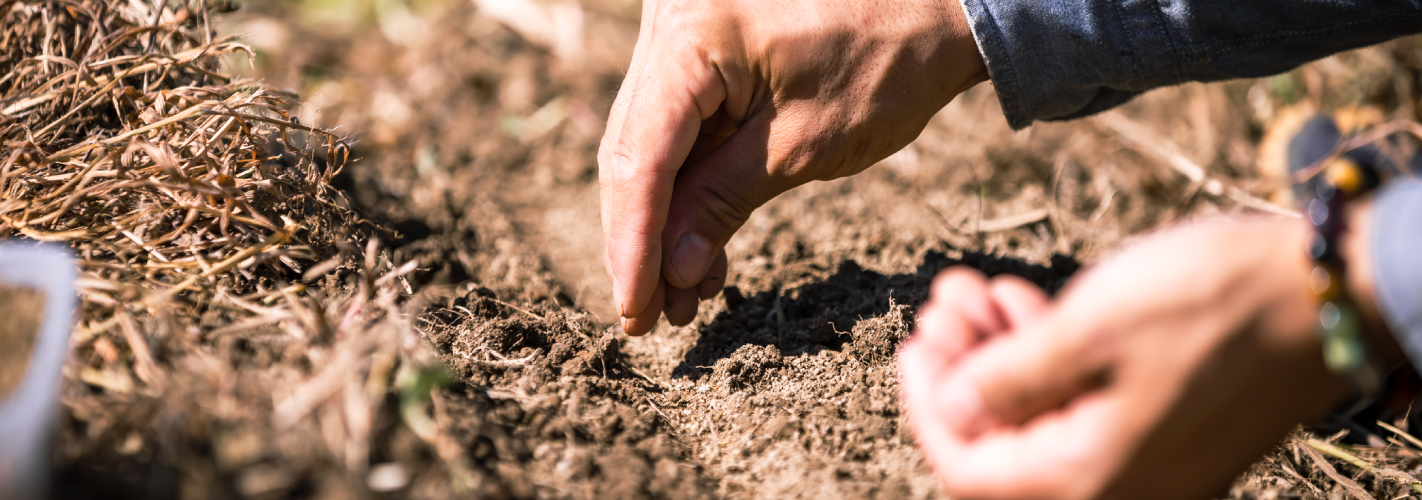Some of my earliest childhood memories are of digging in the dirt in our yard. I would spend hours digging up worms and huge rhinoceros beetles, as well as unearthing rocks and breaking them open to find beautiful glimmering crystals inside of the otherwise unimpressive-looking slabs of rock. My very first experiences were with soil, rocks and creepy-crawly living things. Perhaps I was a lonely child, or, more likely, I instinctively knew that connecting with the soil can actually help one thrive.
I recently spoke with Aaron William Perry, the founder of the Y on Earth Community. The Y on Earth Community is an action-oriented educational non-profit organization that provides curated seminars, workshops, and immersive leadership retreats, as well as a diverse array of digital and print resources dedicated to the transformation of our culture, society, and economy toward stewardship, regeneration, and sustainability. They connect the dots between personal, family, and community strategies for enhanced health and well-being on the one hand, and global strategies for stewardship, regeneration, and sustainability on the other hand. The organization serves as headquarters to a growing global network of ambassadors, and hosts the Y on Earth Community Podcast, on which notable authors, scientists, business leaders, influencers, and sustainability practitioners appear as guests.
Mr. Perry has authored several books, many of them centered on the topic of well-being. Soil features prominently in many of his books, to include a set of children’s books, one of which is aptly titled Celebrating Soil.
Mr. Perry describes five key practices for feeling better, to include more movement like yoga and walking; eating organic, natural foods; connecting with and touching the living soil in our gardens (and houseplants); connecting with wildlife and nature; and cultivating special well-being practices like meditation, aromatherapy soaks, reading books, and socializing with friends and family. I asked Mr. Perry if he had to choose one thing that the everyday, average person could do to feel better, what that one thing would be.
His choice was the fundamental importance of connecting with the soil, which, when we touch and hold it with our bare hands, causes beneficial microbiology to pass through our skin into our blood, enhancing serotonin production, helping reduce depression, anxiety, stress, and even – according to recent scientific studies – helping boost immune system function and cognitive performance. Soil is central to our experience as human beings – hence the etymological connection between our Latin-derived, English term “human” and the term “humus” for soil, also related are “humor” and “humility” both of which we could all probably use more of in our lives.
Mr. Perry explained his five core Thriving practice themes: Soil, Movement, Food, Nature, and Wele (which is the middle-English term meaning “well-being,” from which our contemporary term “wealth” originated (giving us a clue that true wealth is rooted in well-being, wholeness, and a healthful life). He emphasized the importance of connecting with plants. Whether houseplants, foods and medicinal herbs in the garden, flowers in the yard, or trees nearby, these are all living creatures who possess the alchemical power that converts sunlight into food and life-force energy, which we too often write-off as some simple scientific process called “photosynthesis”. He says that when we truly connect with, befriend, and cultivate relationships with living plants, we open our hearts, minds, and bodies to the wonders of the Viriditas of which the medieval mystic and polymath Hildegard von Bingen spoke about 900 years ago – the “gold-green healing energy of the Divine life force that flows through the plant kingdom”. Human life is impossible without the plants, and at the personal level, thriving is not likely without a deep, intimate connection with living plants.
Mr. Perry talks about ways people can “get smarter”. He covers this in his books also, as part of overall well-being is related to using your brain. His number one choice to accomplish this smarter life? Again, connecting with the soil is key. Also, slowing down, gardening, and sitting with your flower patch and/or the trees, observing, listening, relaxing, and receiving the deep A.I. – the “Authentic Intelligence” that flows through the living biosphere of our shared planet Earth. He states that this connection is our birthright and is an essential requirement for any of us who want to truly get smarter – and feel better – in our own personal lives.
Reading to increase your brain health and well-being is something I truly believe in. Read, be curious, and always strive to learn something new. It does not have to be text book reading, fiction can also help your brain grow and thrive.
Mr. Perry’s latest book Viriditas: The Great Healing Is Within Our Power, has been described as an eco-thriller and a novel that makes serious topics fun to read.

















